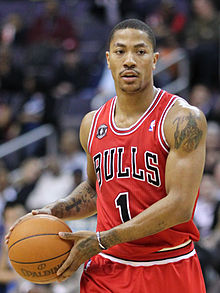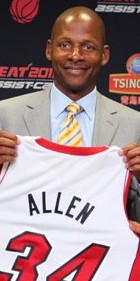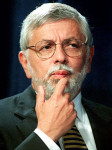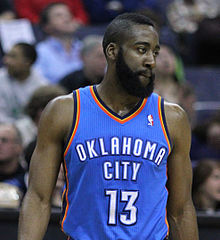 The Shell Answer Man is a column theme that was inspired by my 8th grade journalism teacher Bill Ehrlich, who taught me as much about basketball as he did about journalism. The background story is linked right here.
The Shell Answer Man is a column theme that was inspired by my 8th grade journalism teacher Bill Ehrlich, who taught me as much about basketball as he did about journalism. The background story is linked right here.
Essentially, these are questions I’ve either been asked on Twitter, on the radio, in person, or questions I’ve asked of myself.
So let’s get right to it:
What can we expect from the Chicago Bulls this season?
On the surface it appears as though the Bulls have created more problems than they’ve solved this past offseason. The Derrick Rose knee injury has made things very tricky. The first and most important issue revolving around Rose is his return date. If the Bulls thought they were getting him back in December, then they certainly could plan to be a top-tier contender again. However, that’s not the case.
 With a knee injury like Rose’s, the return date hinges upon the progress of his rehab and the strength of the knee. And considering how much cash the Bulls have tied up in Rose for the next 5 years, they’ll be smart and err on the side of caution. If their offseason is any indication, erring on the side of caution seems to be the philosophy.
With a knee injury like Rose’s, the return date hinges upon the progress of his rehab and the strength of the knee. And considering how much cash the Bulls have tied up in Rose for the next 5 years, they’ll be smart and err on the side of caution. If their offseason is any indication, erring on the side of caution seems to be the philosophy.
The Bulls had one of the more dynamic benches in the league last season. They would use a group that was absolutely elite defensively.
Omer Asik is one of the best defensive bigs in the NBA. Taj Gibson may be the best bench player in the NBA this side of James Harden and Manu Ginobili and certainly one of the better defensive players in the entire league.
Ronnie Brewer is not much on the offensive end, but is a tremendous defender. C.J. Watson was more than adequate as Rose’s backup — save for one play at the end of the Philadelphia series, but no need to dredge up bad memories. And Kyle Korver is not much on the defensive end, but gave the Bulls a 3-point shooting threat they desperately needed.
Out of the five members of this bench mob, Gibson will be the only one back with the Bulls this season.
Asik signed a rich backloaded offer sheet with Houston and the Bulls chose not to match. Watson signed a free agent deal with Brooklyn. They didn’t offer Brewer a contract so he landed in New York on a one-year deal, and they traded Korver to Atlanta for cash and a trade exception.
They replaced this highly productive bench mob for a motley crew of players on short-term deals. They signed Marco Belinelli, who out of them all has the best chance of fitting in because he can shoot it a little and comes from the Monty Williams school of working hard on defense. They signed Nazr Mohammed to replace Asik as a backup big man, which is like replacing James Gandolfini in The Sopranos with the kid who played Steve Urkel on the TV show Family Matters.
They signed Vladimir Radmanovic, who should have been back in the Adriatic League 2 years ago. Then, to top it off, they signed Sideshow Nate Robinson, who is as unapologetic a chucker as the league has and his best defensive asset is his ability to get out of the way so he doesn’t get hurt.
Chicago head coach Tom Thibodeau may actually vomit on the court while trying to coach this group. Then again, he probably won’t because this is all part of team president John Paxson and GM Gar Forman’s master plan.
For a variety of reasons, look for the Bulls to extend Thibodeau’s contract before the start of the season. They’ll do it because he’s a great young coach whose philosophy fits well with the city and the organization, but they’ll also do it because they’re not going to send Thibodeau into the last year of his contract during a semi-tanked season. The Bulls are setting up this season perfectly. They’ll never beat the Heat with Rose only getting back a month before the playoffs, which begs the question why even bring him back at all. By letting Asik and Watson walk and moving Korver, they stay under the luxury tax line. They still have their amnesty clause to use, which will come in handy when they decide to unload Carlos Boozer and his awful contract before the start of next season. If they play it right and don’t bring Rose back, they can end up with a lottery pick, have enough money to bring back Gibson and still have some cap space to add another meaningful player. It may be ugly in Chicago this season, but in the case, the ends will almost certainly justify the means.
Will Miami’s addition of Ray Allen make them unbeatable?
 I will start this answer by saying that I believe Miami will most likely repeat. When I preview the season, I’ll discuss this in more detail, but one thing is for sure. This year’s Heat team will function and look much different than last year’s team.
I will start this answer by saying that I believe Miami will most likely repeat. When I preview the season, I’ll discuss this in more detail, but one thing is for sure. This year’s Heat team will function and look much different than last year’s team.
Last season, the Heat manned the center position with the pu pu platter of Joel Anthony, Udonis Haslem, and for a short time Ronny Turiaf. Finding productive minutes at that position was like finding a pimple on the underside of Shaquille O’Neal’s belly. Its something you can feel if you’re looking for it, but you’ll never quite get to see it.
The Heat played their most productive basketball on their way to a title playing Chris Bosh at center and LeBron James at big forward. James showed how he can be an absolute all-time great playing big forward with his skill set. However that left Bosh in an uncomfortable role in which he appeared miscast. This is why my mom always told me not to judge a book by its cover. Bosh did a tremendous job manning the middle for Miami. He rebounded harder than Robert Downey Jr. He protected the rim like Michael Oher protected his family in the movie, “The Blind Side.” He played a huge role in Miami winning title to such an extent that it’s quite accurate to assert that Miami doesn’t win it all without him. This has afforded Heat President/GM Pat Riley the luxury of making personnel moves with the vision of James at big forward and Bosh at center.
So Riley makes two big moves in the offseason. He signed future Hall of Famer Ray Allen to a 2-year contract. With James at big forward, Allen can play on the floor with James, Wade, and Bosh in a smaller highly skilled lineup. Plus, when the Heat play a more conventional lineup, Allen can help relieve the enormous minutes burden that Heat head coach Erik Spoelstra heaps on James and Wade.
Just as important as the Allen signing is Miami’s signing of Rashard Lewis. Lewis offers the Heat some very complementary versatility. Lewis is a 6’10” forward who plays out at the 3-point arc on offense and will bang with the big guys inside defensively. Playing Lewis next to James in the frontcourt maximizes James’ strengths on both ends of the floor. James gets to play on the low block inside without Lewis invading his space and gets to guard the perimeter defensively, where he is positively special.
This all sounds so wonderful, so what’s the problem? The problem is that all of these personnel combinations are completely reliant on Bosh at center.
As great as Bosh played against the Thunder in the finals, he was playing against a center in Kendrick Perkins who is not an offensive threat at all and a big man in Serge Ibaka who likes to hang on the perimeter offensively. He didn’t carry the burden of guarding bigger more physical players who were going to take him into the low post. That will be very different in an 82-game regular season. There will be many nights where Bosh is going to have the primary responsibility of guarding centers like Andrew Bynum, Roy Hibbert, and Brook Lopez frequently in the East and then having to defend guys like Dwight Howard, DeMarcus Cousins, and Marc Gasol less frequently in the West.
Can Bosh do it effectively? There isn’t a doubt in my mind.
Can Bosh do it without wearing down physically and getting injured? I’m not so sure about this.
This has the potential to take an enormous toll on Bosh’s body. Things get complicated when you factor in Spoelstra’s nasty habit of running his main players way too many minutes. If Bosh is going to Miami’s center for the long haul, there needs to be a premium placed on the preservation of his body. As I stated earlier, the Heat don’t win the title last season without the contribution of Chris Bosh as a big man. If they’re not careful with him this season, not having a healthy Bosh will most certainly undercut their chances to repeat.
As we’re about to start the 2nd season of this new Collective Bargaining Agreement, is it having its desired effect?
 The answer to this question depends entirely on whom you’re speaking to. I think that both sides have some mixed emotions about how it looks so far.
The answer to this question depends entirely on whom you’re speaking to. I think that both sides have some mixed emotions about how it looks so far.
The players are seeing less money as a whole, but the decrease in their share of basketball related income has not affected the top end salaries of the superstars. The middle class is seeing less money, which is exactly what the owners intended, but more importantly for the players, we’re still seeing ridiculous contracts to guys whose ability doesn’t justify the salary. Players like Caron Butler, Jeff Green, and Landry Fields to name three signed contracts that were untradeable albatrosses the second they were signed.
Furthermore, the two superstars who forced their way off their teams to go to larger markets (Chris Paul and Dwight Howard) weren’t able to get their first choices but both certainly got their second choice of destination.
For the owners, besides the extra money in their pocket, the new CBA is a lot like the old CBA. First of all, the ultra punitive luxury tax has still not deterred the large market owners from spending. The Lakers have a TV contract that rivals the U.S. national debt. After a year of attempting to exercise more fiscal responsibility, the Lakers saw an opportunity to add Steve Nash and Dwight Howard and decided that frugality was for the birds. When the Buss family is working on a deal to retain Howard on July 1, 2013, you can rest assured that the new punitive luxury tax will not be at the forefront of their minds.
The luxury tax certainly hasn’t been a deterrent for the Brooklyn Nets and their owner, Russian billionaire and International Man of Mystery Mikhail Prokhorov. In addition to being like really really wealthy, Prokhorov has a sweetheart real estate deal in Brooklyn that makes the revenue he takes in from the Nets the cherry on top of the sundae.
The Nets absorbed the ugliest contract in the NBA in Joe Johnson onto their payroll. They signed Brook Lopez, who only played 5 games last season, to a max contract. They gave Kris Humphries the same money per year than the Oklahoma City Thunder are paying Serge Ibaka and more than the Boston Celtics are paying Rajon Rondo. They’re paying Gerald Wallace the same amount of money that Rondo makes for the next 4 years right after he crosses over to the other side of 30 years old. While the Nets were throwing all this money around, Prokhorov wasn’t concerned with the punitive luxury tax. Even the owners’ former version of the unruly class clown, Mark Cuban, tried to reach out to Prokhorov to preach some fiscal discipline.
Even the New York Knicks, who claimed fiscal responsibility in making the arguably asinine decision not to retain Jeremy Lin, are not letting the luxury tax deter them. Would a team that’s concerned about the luxury tax do something as ridiculous in signing a one-dimensional easily replaceable piece like Steve Novak to a 4-year, $15 million deal. Know this about the Knicks. If Jeremy Lin doesn’t renegotiate his offer sheet with the Houston Rockets, their owner Jim Dolan would have cared about the luxury tax just about as much as Prokhorov or the Buss family, but I digress.
The other big principle that was rammed down our throats during the lockout was competitive balance.
I never saw competitive balance to be anything more than as a moniker for the owners controlling player movement as much as possible. Considering how good the ratings in the playoffs are in big markets, it’s in the league’s best financial interest to have superstars in these markets playing deep into the playoffs.
The owners’ big test on whether their lockout accomplished competitive balance will take place in Oklahoma City as we start training camp. The Thunder are an organization that has truly done everything right. They’ve drafted as well as a team can draft. They lucked into Kevin Durant with the second pick in the 2007 draft. In 2008, they took two unproven players in the first round, including what appeared to be a reach in one-and-done UCLA freshman Russell Westbrook.
Their 2nd first rounder that year was the #24 pick and they selected a raw big man prospect from the Congo named Serge Ibaka. The 4-year $48 million deal that he just signed with the Thunder would strongly suggest that Thunder GM Sam Presti is happy with the pick.
In 2009 with the 3rd overall pick they selected an undersized shooting guard out of Arizona State named James Harden who in spite of his issue with facial hair, has been a tremendous fit. The one bad draft pick they made, Jeff Green in 2007, they were smart enough to trade to Boston at the 2011 trade deadline for a more useful player for their purposes in Kendrick Perkins.
Their short-term reward was earning a trip to the NBA Finals last June. Considering how young the core players on this team are, their future looks very bright. This CBA was supposedly designed to help small market franchises like Oklahoma City stay together. However, it may not work out that way.
The Thunder have already locked up Durant and Westbrook with long-term max money contract extensions. Just last month, they extended Ibaka at a very reasonable rate. Harden is the last core member left waiting to get an extension.
 From what other players have commanded on the open market, Harden can certainly make a case that he deserves max money. If the Thunder give it to him, they’ll be paying the luxury tax. As opposed to the Lakers, the Nets, and the Knicks, Oklahoma City owner Clay Bennett has to worry about the luxury tax. It possible he could be close to being below the tax line if they amnesty Perkins, which is a possibility, but it doesn’t solve everything. He doesn’t have the revenue sources that the Lakers, Nets, and Knicks do. The Thunder have until Oct. 31st to sign Harden to an extension or he can be a free agent next year. The Thunder are far too smart (insert Knick/Jeremy Lin joke here) to lose Harden for nothing. If they don’t sign him, I would expect them to shop him hard for a premium package of young players and picks for the sole purpose of cutting costs.
From what other players have commanded on the open market, Harden can certainly make a case that he deserves max money. If the Thunder give it to him, they’ll be paying the luxury tax. As opposed to the Lakers, the Nets, and the Knicks, Oklahoma City owner Clay Bennett has to worry about the luxury tax. It possible he could be close to being below the tax line if they amnesty Perkins, which is a possibility, but it doesn’t solve everything. He doesn’t have the revenue sources that the Lakers, Nets, and Knicks do. The Thunder have until Oct. 31st to sign Harden to an extension or he can be a free agent next year. The Thunder are far too smart (insert Knick/Jeremy Lin joke here) to lose Harden for nothing. If they don’t sign him, I would expect them to shop him hard for a premium package of young players and picks for the sole purpose of cutting costs.
Presti and Bennett will try to sell you on the fact that they love second-year player Reggie Jackson and that Eric Maynor is fully recovered from his knee injury and ready to make a major contribution, but that’s not a reality yet.
The owners set out to put a system in place that would allow a small market team which made every right decision to compete for a title with that core. Very frankly, that’s the bare minimum if all the competitive balance talk was even remotely in earnest.
If the Thunder are forced to tear apart their core just when their team has become a legitimate title contender, that will be the ultimate failure for this CBA, and certainly won’t bode well for the possible opt out in 2017. It’s not exactly a rosy picture, but now it’s out of the way and we all can get ready to enjoy a normal season.
Executive producer and co-host of soon-to-launch SheridanHoops radio, Brian’s true passion is the NBA. He grew up in a basketball family. His father, Burt, was an elite college basketball player for Newark Rutgers in the late 40’s and was drafted by the Tri-City Hawks (now Atlanta) in 1950 by their GM Red Auerbach. Brian gets his money’s worth from his NBA League Pass. He lives in Livingston, N.J. with his wife and 4 children.
Am I the only person who remembers Rashard Lewis’ last three awful seasons?
Nice article, and I agree with most of it, except the part about Russell Westbrook being a one and done. He was two years at UCLA.